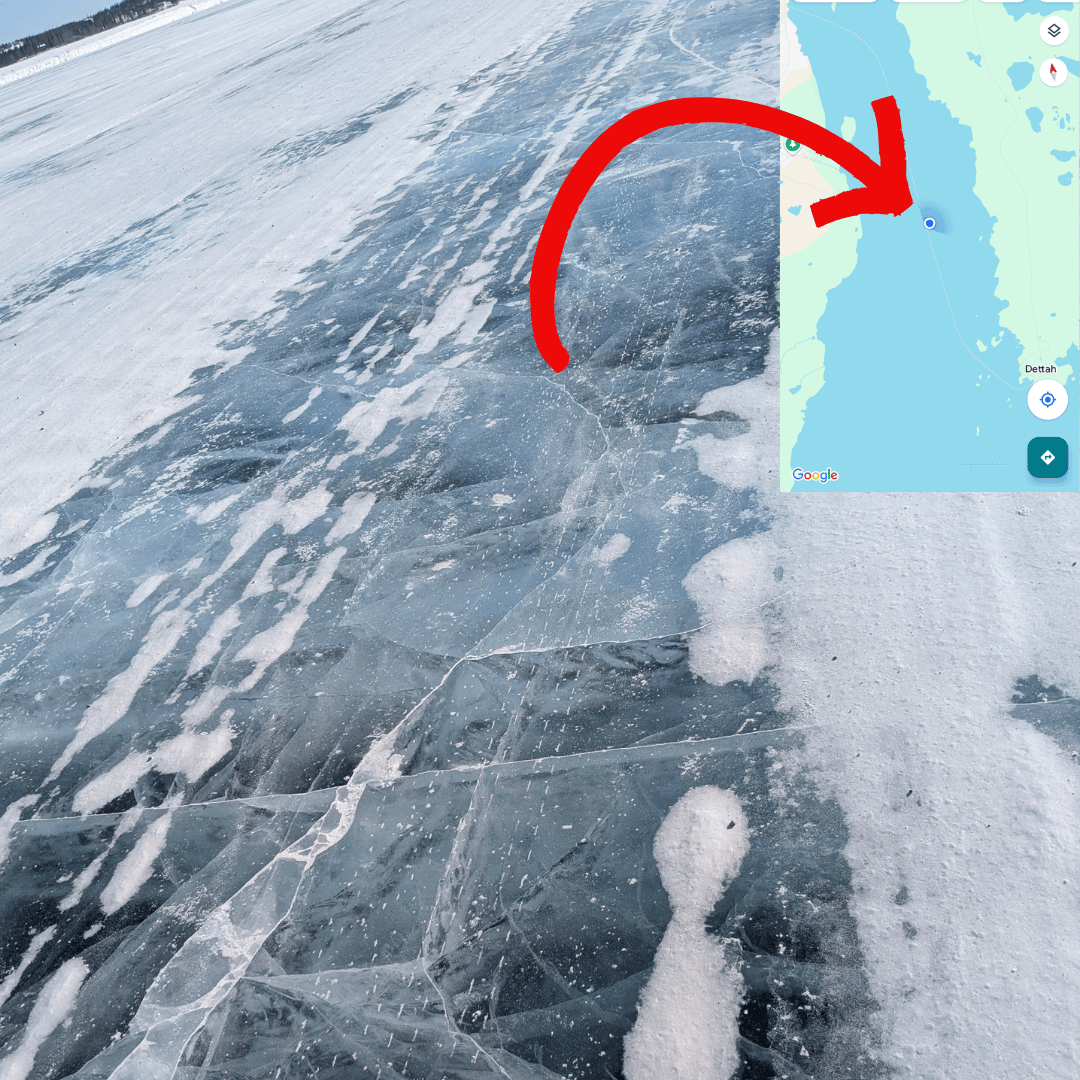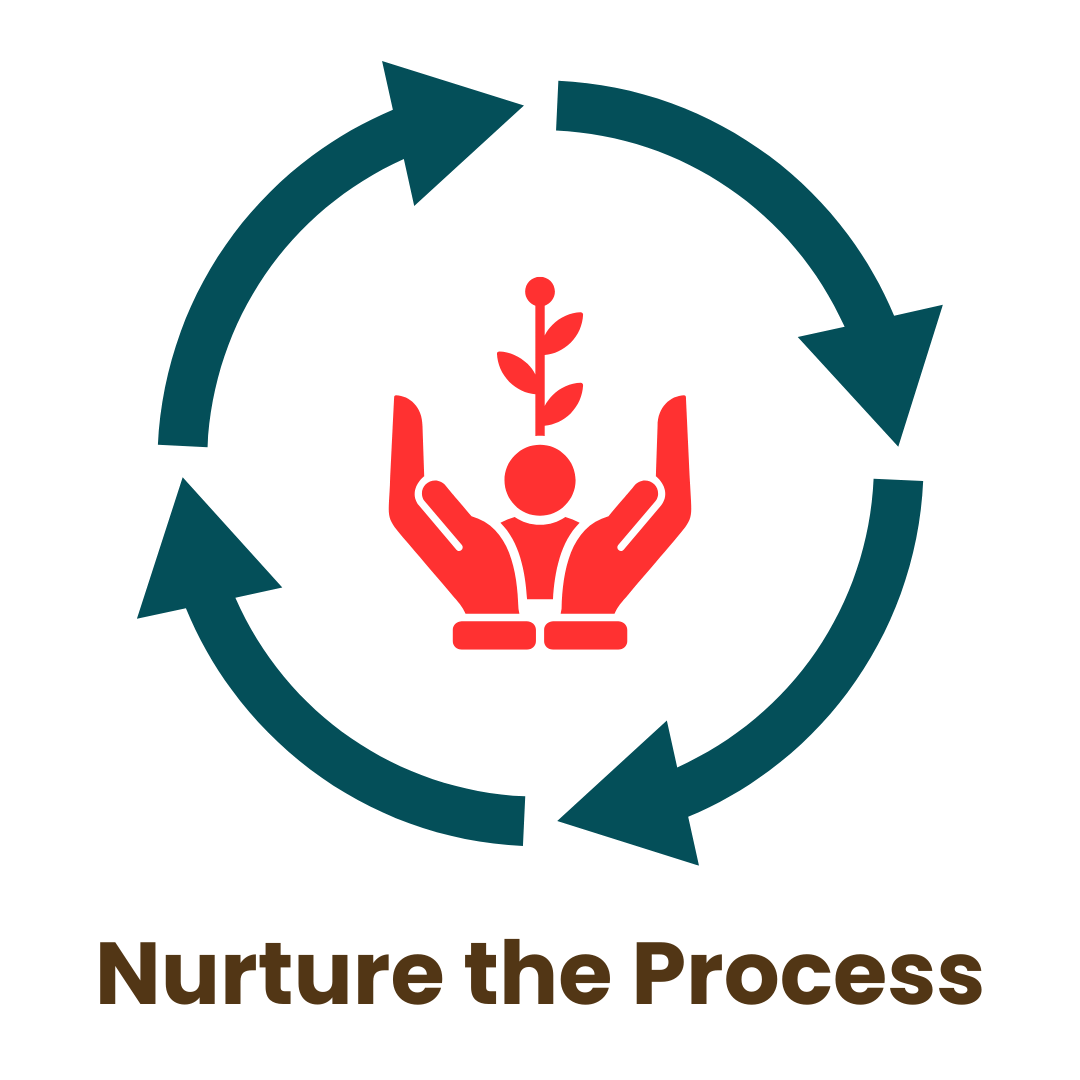- CONNECT collective
- Posts
- Trust the Process???
Trust the Process???

Driving on the Dettah Ice Road
We landed in Yellowknife, a small town in the Northwest Territories of Canada, at 1:00 in the morning. It was cold (close to -20°) and dark as our taxi drove to our home for the next several days. This remote spot is situated about 250 miles away from the Arctic Circle.
A lightly glowing cloud was in view above us. Not a cloud. The Aurora Borealis, the whole reason for the trip. “You need to go to the Ice Road to see the lights,” our driver instructed. The Dettah Ice Road, a passage from Yellowknife to Dettah that is (as you would guess) made of ice. It’s a lake, a body of water . . . not a road.
“Is it safe?” I asked.
“Yeah, yeah. It’s safe,” he replied dismissively.
Obviously, our taxi driver didn’t understand that I needed a full scientific breakdown of exactly how this thing was formed. What’s its weight capacity? How many cars travel over it per day? How does capacity degrade with each car travelling across? What happens if it cracks while you’re mid-drive (I guess you’re SOL)? How many people have died driving across it historically? This season?
I was unimpressed with the driver’s engineering analysis.
My husband, of course, vowed to drive across it. The next day he conducted some quick research on how it forms and how it’s tested and presented it all to me with a proposal to drive to the Snowking Festival located on the road (lake).
“Trust the process, babe.”
Later that day we drove on a road made of forty-two inch thick ice. Did I trust the process? No, not really . . . but I did it anyway. You might be wondering what convinced me to go with the process, even if I didn’t implicitly trust it?
I had data, solid information that led me to believe the frozen lake was safe to drive across. It’s tested a crazy amount as it’s constructed, as well as throughout the season. Snow is continually cleared to allow the ice to thicken (snow insulates). The road has officially been constructed each winter since 1983 - without any issues.
I have to admit, it was pretty freaking cool.

In my mind, the whole experience reminded me of “trusting the process.” We say it all the time. I say it all the time. “Trust the process,” I tell clients. But, my perspective has shifted.
Do we need to trust the process to engage with it?
Trust is a big ask. Trust is built slowly, like that forty inch thick, four mile long ice road that forms from flowing water. Nature (sub-arctic temps + water = ice) plus nurture (actual engineers, unlike my taxi driver, constructing and testing the road) work together to see a modern marvel through to fruition.
This is us trying to accomplish a major goal or tackle a dream.
There is an underlying process, undeniable things that have worked for other people that we are challenged to apply to get what we want out of life. The underlying process is nature doing her thing. We are the engineers working with the process to make amazing things happen.
I see evidence of what I’m saying every single day. I want to explore this thought through two lenses, that of a traditional 9-5 worker seeking a job and a solopreneur. These are the people with whom I work daily.
The Job Seeker
There is a process one must follow to land a new job. You have to spruce up your resume and references, apply to jobs, reach out to people in your network, interview, and follow up on leads.
Anyone who’s waded into the icy waters of an unexpected job search knows how overwhelming the process is. Here’s the thing, though, there is a process.
You apply to a job. You may perceive you are perfect for that job or that you don’t have a chance in hell. Regardless, you apply. Someone will win that job. Maybe it’s you (Yay!), maybe it isn’t (well, that sucked).
If your job search continues, what should you do? Well, I’ll tell you what not to do. Don’t balk at the process. Don’t get sidelined or overwhelmed by the process: needing to update your resume and update your references, being forced into the networking game, applying to jobs nonstop, or not receiving a request for an interview. That’s the natural process. Your part is to nurture that established process.
I wrote a newsletter a few weeks ago about three clients that quickly landed jobs and one that is still struggling. These examples speak to engaging in the process, regardless of your level of trust.
The clients that landed jobs quickly were each in a desperate situation. They didn’t have time to “trust” the process, they had to engage with laser-focus to keep themselves financially afloat. And, they did.
The client who continues to struggle fights the process. And, honestly, that person is in the best situation. She has a job and she works in a highly sought after field. But, she applies sporadically (and rarely). She’s not nurturing the process.
I care about this client; she’s a good person. And, she’s not lazy. She’s a hard worker who is terrified of a process that she doesn’t trust.
Job seekers, I urge you to look at your search objectively and without emotion. Here are the bare basics of a nurtured job search: You apply until you land an interview. You interview until you land the job. Period.
Those who “try” will lose a prime position to someone who “did.”

The Solopreneur
My solopreneur ambitionists, your process is similar to your job seeker colleagues. Again, sticking with a basic, 10,000 foot view, the “job” of an employee or solopreneur is to solve a problem.
Your business process is to identify a problem people want solved. You research the market. You create or otherwise gain access to a solution that you vet, and then market and sell. You do this by networking and nurturing relationships. It’s nonstop nurturing.
I can quickly layout just a few issues I’ve experienced with potential clients over the years:
Little to no market research. The solopreneur enjoys making something or providing a service, so they just assume someone out there will buy. They may tell themselves that they are solving a problem, but they never ask, “Will people pay to have this problem solved?”
They don’t vet the product/solution. People come to me after they’ve spent money building or buying a product, only to have no one buy it. This is the “If I build it, they (customers) will come.” I can’t tell you how many times I’ve asked solopreneurs, “Who’s buying?” just to be met with a blank stare.
They work their solopreneur business like it’s a hobby. That’s like when you relegated that person that has a crush on you in high school to “forever friend” status. This is no way to run a business, either commit or call it quits.
All the above are examples of not nurturing the process. If the process is nurtured every step of the way, then you won’t waste your time and money on a solution that people don’t want. If you nurture the process, you will be sure who your future clients/customers are. If you nurture the process, you will commit fully to understanding how a business works.
Listen, starting your own business isn’t easy. Many dream of doing it, few follow through.
If the process is proven you don’t need to trust it to engage.
Here’s my new approach in lieu of “trusting” the process:
I wondered.
I learned.
I applied.
I knew.
You find trust at the end, my friends.
Sending you all Peace, Love, & Harmony.

Do You Need Help Tapping Into Your Potential?
Are you struggling to meet your goals and wish you had support? Have you ever considered working with a coach? You may not know what a coach does.
One-on-One Coaching:
You and I develop an individualized plan targeting your specific goals
You receive individualized support from me
Answers to your specific questions
Guidance on your specific issues and blocks
Accessibility to me outside coaching sessions for added support (individual texts and emails to check in)
Your plan leads to learning how your personal growth is in your control
Are you ready to take action but are at a loss on what step to take next?
I can teach you how to get started and accelerate your growth by using repeatable methods. Need the tools? I’ve got them. The goal is always to make you independent. I should be working myself out of a job. Once you take off, you may want to have a session from time to time, especially if you are scaling your goals. A good coach teaches you how to stand on your own two feet. Contact me today. Are you ready to CONNECT?